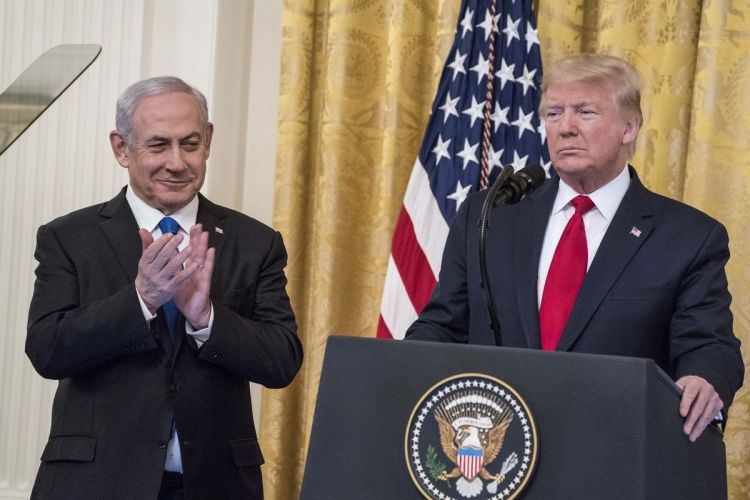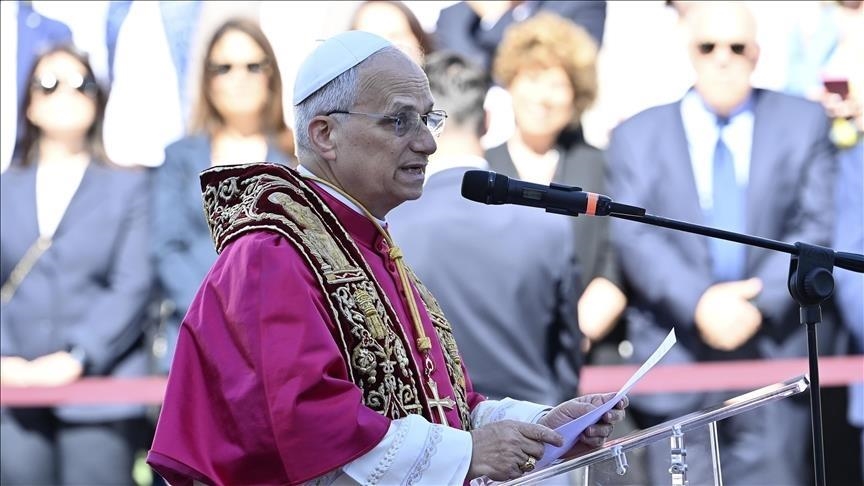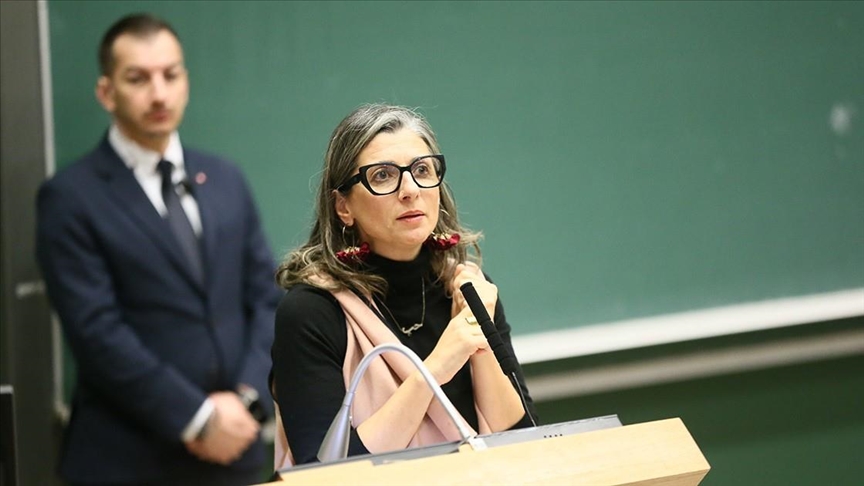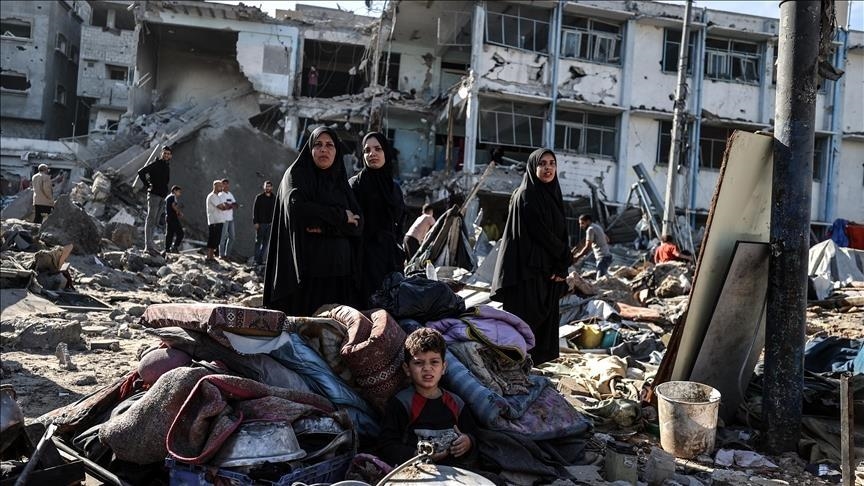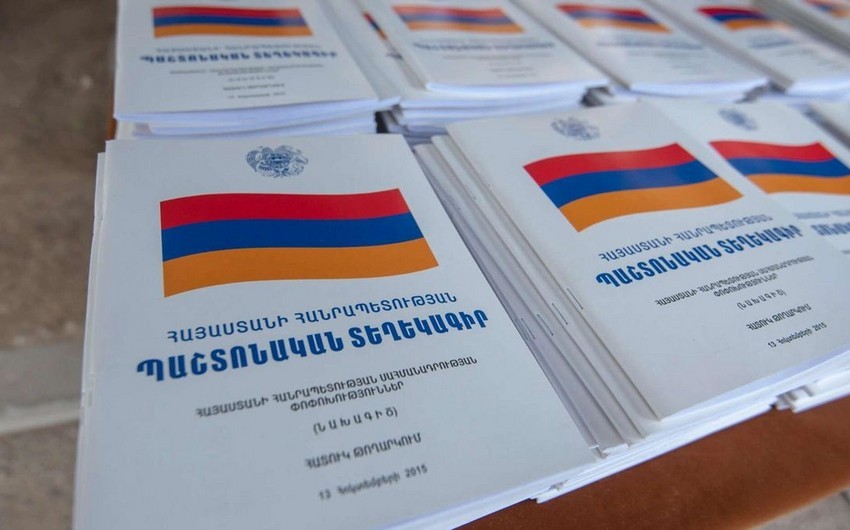On Tuesday, US President Donald Trump unveiled his much anticipated peace plan for the Middle East alongside Israeli Prime Minister Benjamin Netanyahu. Called the ‘Deal of the Century’, the Trump administration has promoted the plan as a historic opportunity for both Israelis and Palestinians. The plan was constructed by Trump’s son-in-law and Senior Advisor Jared Kushner and has been in the works for more than two years. The plan consists of two core elements: a resolution of all outstanding political issues and a $50bn investment plan for the envisioned Palestinian state. While the plan has been fully embraced by the Israelis, including Netanyahu’s rival Benny Gantz, the Palestinians have voiced their rejection of a deal that they see as being one sided.

Michael Arnold is an Editor and Researcher at the TRT World Research Centre and a PhD candidate at the American University of Beirut gave exclusive interview to Eurasia Diary. His work focuses on modern Arab and Middle East history and the history of Islamic thought.
The Trump administration has unveiled their much anticipated peace plan, dubbed the ‘Deal of the Century’, and lauded by both the Israeli and American administrations as a historic opportunity to settle the Israeli-Palestinian conflict. In your view, what does Trump – who has already recognized the disputed city of Jerusalem as Israel’s capital – see behind the plan
Trump sees himself as a ‘deal maker’. It seems as though he has come to believe that he is the one destined to break the stale-mate in the Middle East. Unfortunately, he seems to be getting advice from his son-in-law Jared Kushner (who is reportedly the architect of the plan) that is completely divorced from the reality of the situation. Treating the Palestinian issue like a New York real estate deal is not likely to go very far.
The so-called ‘Deal of the Century’ has been rejected by the Palestinian Authority even before it became public seemingly on the basis that it fails to address the core issue of the Israeli occupation. However, the economic portion of the plan has been presented as a historic opportunity for Palestinians to guarantee greater social and economic benefits for their people. Does the promised $50bn of investment have the potential to fundamentally alter economic conditions in the Palestinian territories or is it merely a way to coerce the Palestinians into accepting the less appealing elements of the deal?
The idea that the plan will create greater economic opportunity for Palestinians is naïve at best and disingenuous at worst. Firstly, all Palestinian factions, including civil society, have made it clear that a political solution must first be advanced before any talk of investment can be seriously considered. It is important to remember that the Israeli occupation is ultimately responsible for any lack of economic development in the Palestinian territories as they have maintained a tight grip over the Palestinian economy for years.
In the wake of the 1993 Oslo Accords, the 1994 Paris Protocol further entrenched Israeli economic control by granting Israeli commercial interests direct access to the Palestinian market while at the same time restricting the flow of Palestinian goods into Israel. This has forced Palestinians to not only be dependent on Israeli goods, but also to work for low wages in Israeli businesses thereby further impeding the development of industry within the Occupied Territories.
The occupation itself has served to further this control by allowing Israel to exercise physical control over the day-to-day economic life of Palestinians. In the case of the Gaza strip, via a crippling blockade, and in the case of the West Bank, by way of a network of settlements, checkpoints and Israeli only highways that severely restricts the movements of Palestinians.
Now that the political elements of the plan have been announced, are there elements regarding the settling of long-disputed issues that are fundamentally different from previous proposals?
The political portion of the plan, which was announced last night by President Trump and called ‘Peace to Prosperity’, while not eschewing the two-state solution, advances a version of it that includes almost all the elements that have always been unacceptable to Palestinian factions. The map released by the White House as part of the announcement makes it clear that any real negotiations related to final borders, if they are to occur at all, will work heavily in favour, if not, fully acquiescence to the Israeli position.
President Trump has said that it is impossible to make peace in the region without the deal being accepted by the Palestinians. The head of the Palestinian Authority, Mahmood Abbas, has refused to speak with Trump about the deal. In your view, is it possible to engage the Palestinians over a deal that they have made clear they are opposed to?
If there is a genuine desire to engage Palestinians in this issue, rather than coerce them into accepting the plan, two factors will be necessary. Firstly, there needs to be an honest broker. It is doubtful if the United States has fulfilled this role for a long time, if ever, but under the Trump administration it is clear that there is no effort to even pretend like this is the case. The fact that the plan has been deemed ‘acceptable’ by both Netanyahu and Gantz is an indication that it effectively advances the Israeli position on all of the critical issues including the right of return, the issue of settlements and the status of Jerusalem. If they are looking for a partner to negotiate with, they will have a hard time finding it.
Secondly, even without an honest broker, the Palestinians need to put aside internal differences and advance a common front. So far, this seems to be taking place. The fact that the Palestinian Authority led by Mahmood Abbas, who have since at least the Second Intifada cooperated closely with both Israel and the US, rejected the deal before it was even announced is testament to the plan’s ‘dead on arrival’ status amongst all Palestinian factions.
The Israeli Prime Minister has declared his intention to annex the Jordan Valley to Israel. Is this a realistic proposition?
The plan effectively endorses this position. Given the evolving US position on Jerusalem and the status of the Occupied Golan Heights, and the continual lack of action from the international community, there is no reason why Netanyahu would see any impediment to annexing the Jordan Valley and other territories to Israel. However, as notable Israeli commentators have noted, these moves will eventually put Israel into a situation where they either will have to forgo their status as a ‘Jewish State’ or accept a situation where they willingly maintain an apartheid-like situation.
Interviewed by Yunus Abdullayev

